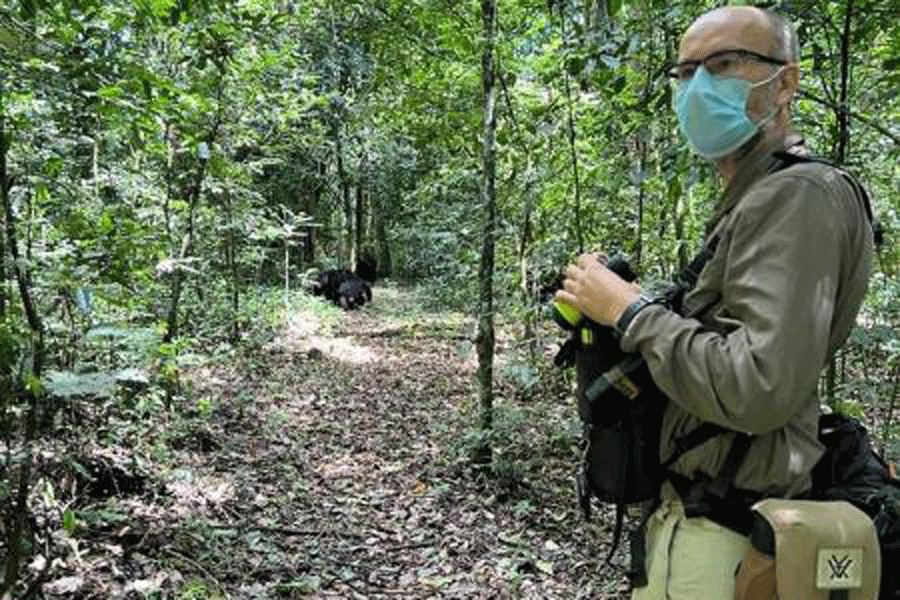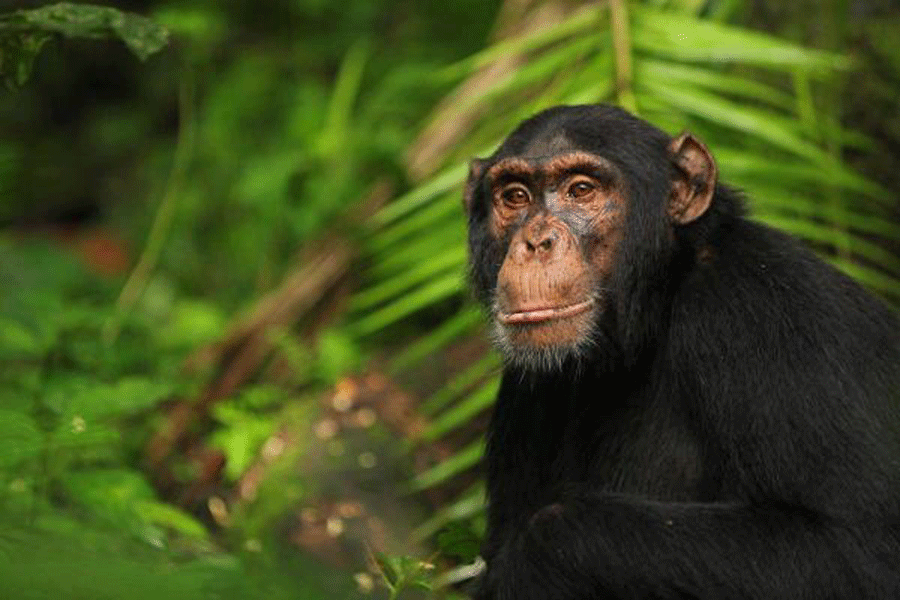Scientists have documented demographic and hormonal evidence for menopause in wild chimpanzees, a discovery that they say provides fresh insights and raises questions about this rare evolutionary trait hitherto known only in humans and some species of whales.
The study released on Thursday has shown that females in a community of wild chimpanzees in Uganda’s Kibale National Park survive long past their ability to reproduce and experience a menopausal transition involving hormones similar to that observed in women.
The researchers who analysed demographic and fertility data from the chimpanzee community collected over 20 years have found that fertility declines after age 30 and there are no births after age 50. Urine samples from 66 female chimpanzees aged between 14 and 67 years showed that changes in hormones such as estrogen and progestin marked the transition into the post-reproductive state.
Explaining the evolution of menopause — or a long post-reproductive phase of the lifespan — has been a long-standing challenge.

Kevin Langergraber at the Ngogo research site. The Telegraph
“So few species have post-reproductive life spans because natural selection favours traits that result in passing genes on to the next generation,” Kevin Langergraber, associate professor at the Arizona State University who led the study of the chimpanzees in Uganda, told The Telegraph. “It is not obvious how selection can favour extension of lifespan past the point at which individuals can no longer reproduce.”
The study’s findings based on observations from 1996 through 2016 at a research site within Kibale called Ngogo were published in the US journal Science on Thursday.
A prominent theory to explain post-reproductive lifespan has been called the “grandmother hypothesis” which proposes that older females help their children and grandchildren survive and reproduce, increasing grandchildren’s odds of survival. Earlier studies on human grandmothers have documented such positive effects.
But female chimpanzees do not help their grandchildren.
“Our results show that under certain ecological conditions, post-reproductive survival can emerge in a social system quite unlike our own and that includes no grandparental support,” said Brian Wood, associate professor at the University of California, Los Angeles, and lead author of the study.
In chimpanzees, there is little scope for grandmothering effects.
“Daughters leave their mothers when they disperse to a new group in adolescence — so they are not around to be helped by their mothers,” said Langergraber. “Older females could conceivably help their son’s offspring survive, but mating is so promiscuous in chimps, it is hard to see how they would recognise their sons’ offspring,” he said.
Scientists have earlier observed long post-reproductive lifespans in chimpanzees and other primates in captivity receiving good care and nutrition. Those observations have fuelled speculation about whether menopause in the Kibale chimpanzees might have emerged under favourable ecological conditions — low levels of predation and an abundant food supply.
Michael Cant, an evolutionary biologist at the University of Exeter in the UK who was not associated with the Uganda study but has himself pursued research on the evolution of menopause, said the study “both illuminates and raises questions” about the subject.
“The (findings) raise important new questions,” Cant told this newspaper. “Are older chimpanzees somehow boosting the fitness of their offspring? Does the social role and behaviour of chimpanzees change when they become post-reproductive? Are big brains, language, cultural inheritance important factors shaping menopausal life history?”










